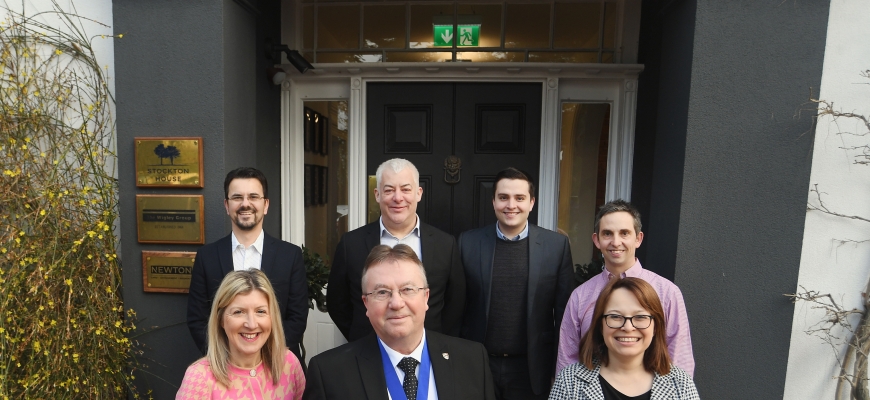
A panel of business experts from Coventry and Warwickshire believe there are ‘positive signs’ ahead for the economy – but that strong growth is still some way off.
The Coventry and Warwickshire Chamber of Commerce held its Quarterly Economic Survey (QES) Breakfast Briefing at Stockton House in Southam, the home of regionally based property and development company The Wigley Group.
The event, hosted by the Chamber’s head of policy Sean Rose, featured a panel of four experts from finance, professional services, manufacturing and international trade who discussed the challenges and opportunities for the economy in front of an audience of regional businesspeople.
The panel reflected on the improved QES results from the final quarter of 2022 and looked ahead to the coming year.
Steve Harcourt, director of Prime Accountants Group – the Chamber’s QES partner, said there we mixed reports from his company’s client base.
He said: “We are getting some very positive responses from a lot of our clients – some are really growing – while we have others who are quiet. One of the big issues we have seen over the past year is how costs have gone up and that has put a real squeeze on margins.
“Looking ahead, I don’t think we are going to see dramatic growth in 2023 but a year of stability would be something most businesses would welcome with a view to hitting the accelerator the following year.
“It was good news that we avoided recession because, although it was only by a small margin, the very mention of the R-word can cause issues with confidence within the economy.”
Roger Scott, of Lloyds Bank, added: “The regional economy has proved to be very resilient but I am certainly seeing more businesses starting to spend the cash that they built up during Covid.
“If that’s investing in growth, that is positive news, but if it is just to cover shortfalls in cashflow they need to be mindful of that, and address the core profitability issue.
“Looking at the economy more broadly, the fact that inflation and interest rates are expected to stabilise means businesses should be able to start planning with a bit more certainty around their cost-base.”
Tim Squires, of Squires Gear and Engineering, said some of the supply chain issues in manufacturing had eased rather than disappeared completely.
He said: “There was a point in 2022 when steel suppliers were only holding prices for two hours. It was like we were working in the stock exchange, rather than in manufacturing at times as we were having to make instant decisions with our customers whether to buy!
“The situation has eased but it is not resolved and I think there is a real need to make manufacturing in the UK less expensive to make us even more competitive around the world. British manufacturing is, however, seen as high quality in other countries and that gives us real hope.”
Jenny Hooper, of Independent Freight, added: “There have been a lot of challenges and while 2023 has started slowly, we hope to see that pick up.
“Shipping containers for imports reached a peak of $(US)2,000 last year which was a massive increase in costs for international traders. They have fallen back to pre-covid levels making it more cost-effective for businesses to trade overseas again.”
Sean Rose said: “We were lucky to be in such wonderful surroundings at The Wigley Group headquarters, with such a knowledgeable panel and audience.
“It is clear that there is some way to go before we see the economy growing sustainably but our panel certainly backed up our QES results that there is light at the end of the tunnel.
“As a Chamber, we are delighted to be able to offer such valuable insight to our members, while our survey means we can speak to decision makers with a real understanding of how businesses are feeling.”
Pictured (left to right): Back – Steve Harcourt (Prime Accountants Group), Roger Scott (Lloyds Bank), Sean Rose (Chamber), Tim Squires (Squires). Front – Jenny Hooper (Independent Freight), Tom Mongan (Chamber president), Claire Lynch (The Wigley Group).
